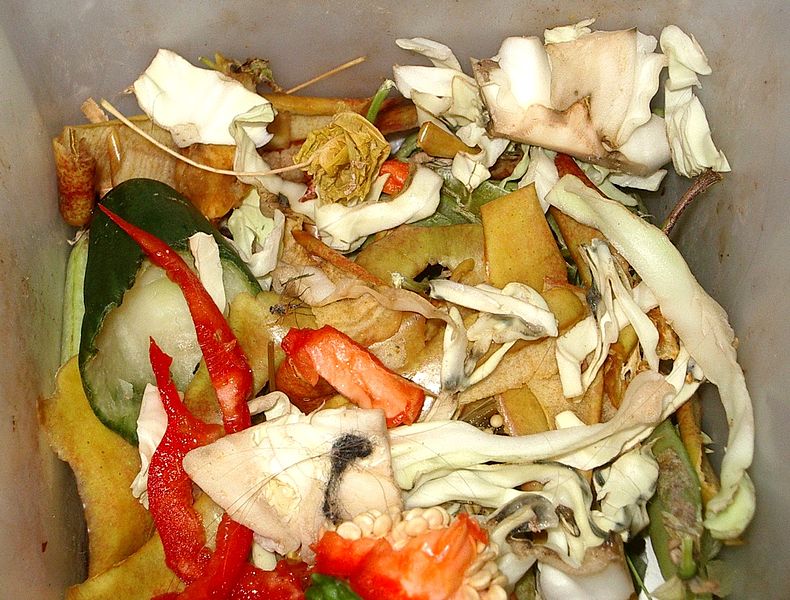Wasting our food away
Interview with
Ginny - Now, we've heard a bit about how we can reduce the carbon footprint of the food that we eat, but what about the food that we  don't eat? An astonishing 7 million tons of food and drink is thrown out in the UK every year. Marie-Ann Ha from Anglia Ruskin University appeared at the Food for Greener Future Conference in Cambridge to talk about the impact of wasted food. So, Marie-Ann, I mentioned 7 million tons of food and drink there. It sounds like a huge amount. Is that particularly large compared to other countries?
don't eat? An astonishing 7 million tons of food and drink is thrown out in the UK every year. Marie-Ann Ha from Anglia Ruskin University appeared at the Food for Greener Future Conference in Cambridge to talk about the impact of wasted food. So, Marie-Ann, I mentioned 7 million tons of food and drink there. It sounds like a huge amount. Is that particularly large compared to other countries?
Marie-Ann - I don't know how it compares to other countries, but it is an enormous amount. For individuals, it works out at around 200 pounds per person per year of food that is being wasted. This particular food waste is actually avoidable food waste as it's called. So, it's food that is perfectly edible and it's being thrown out either because people think it's gone off or they've served too much. Those are the main reasons that people decide to throw their food out.
Ginny - So, people are taking perfectly good food and throwing it away. Why do you think that happens?
Marie-Ann - Chris mentioned that something had evolved in his fridge and this is one reason. People do not look after their fridges properly and food tends to get pushed to back and forgotten about. So that is perfectly edible food that goes off and once it gets that bad, you can't actually resurrect it. There are also problems with food labels. People do not understand when you have something that says that it's best before, fresh potatoes are a classic example. These are actually edible for a long time. I either grow my own potatoes or get them from a local shop, so I do not have any food label on my potatoes. Potatoes do last a long time. You need to store them correctly in a dark place and preferably, coolish, not necessarily the fridge, and they will last for 2 or 3 months, but people do not understand this because the supermarkets put a label on that say, best before.
Ginny - So, why do you think we have this big problem that people, I guess, pay so much attention to the labels rather than what's actually inside?
Marie-Ann - This is actually part of the problem of sustainability. People have forgotten skills and common sense of actually, when you look at a food or smell a food, you certainly know if it's gone off or not. So Chris's evolving creature at the back of his fridge. He would know from the look, the smell, and probably the noises it's making that it had definitely gone off. But there are a lot of things like bread that might be slightly stale. People throw that out instead of toasting it or making a bread and butter pudding or looking for alternate uses. It's just people are no longer relying on their common sense.
Ginny - Is this just a problem of people once they bought the food then throwing it away or is it happening earlier or up in the chain of produce as well?
Marie-Ann - It's happening earlier in the chain as well. We waste around about a third of our food that is actually grown on the farm. It's destroyed before it gets to the farm gate and a lot of that is because of the perception of what food should look like, that it must be perfect. Now, this has partly come through from previous EU regulations which said that we could sell either grade one or grade two, which were physically perfect that's a fruit or vegetable or meat. That regulation has been changed, so we can now sell what is known for example as jam fruit, jam strawberries which is more or less slightly deformed. People are still so used to seeing perfect fruit, vegetables in particular. That's what I'm particularly interested in. that they often do not choose the misshapen fruit and it will be left on the shelf.
Ginny - Now, do you have any comments about our listeners who've told us about their dinner. So, we've got someone making roast lamb, someone having rice which sounds very boring if they're just having rice. We've got someone having toast and someone making curry. Which of those would you say is the most sustainable dinner?
Marie-Ann - If the roast lamb was a local lamb, then that would be very good. I would hope they're having some fruit and vegetables with it or some vegetables with it. Your father's home-grown leek sound to me like the most sustainable dinner we've had so far. I presume he's got some local potatoes as well to go with it. So, that's pretty good.
Ginny - Great! Well, thanks a lot Marie-Ann. That was Marie-Ann Ha from the Anglia Ruskin University.
- Previous Gene of the month - Escargot
- Next The costs of keeping it cool










Comments
Add a comment